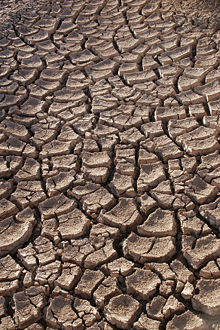Plants may soon be able to survive extreme periods of drought through technology being developed by Purdue University researchers.
"When plants or crops have no water, their first response is to stop growing, which makes them much smaller and consequently produce less product," Purdue's Yang Zhao, a horticulture research assistant, said. "Biotech companies, however, are removing this response so that plants and crops continue to grow even with a lack of water. The difficulty with that strategy is that if the crops face a prolonged period of drought then they are actually more sensitive because they don't have their natural responses for protection."
Zhao said the Purdue team has developed an alternative form of genetically modifying crops and plants to survive severe drought conditions, which uses a gene that causes the plant to have a rapid leaf pore closure, a reduced rate of water loss due to evaporation, alleviated cell membrane damage and improved photosynthesis -- resulting in an improved reaction to drought conditions.
The researchers are especially interested in a plant’s ability to protect themselves with dormancy.
"If a crop is under a lot of severe stress it will become dormant, and when water is available again, even if that's after a very long time, it revives and grows again,” Ray Bressan, a professor at the College of Agriculture at Purdue, said. “Our method doesn't rely on irrigation to save it and farmers can be assured that they won't have to replant everything and start over if the drought is prolonged, saving a lot of time and money."




 Alerts Sign-up
Alerts Sign-up